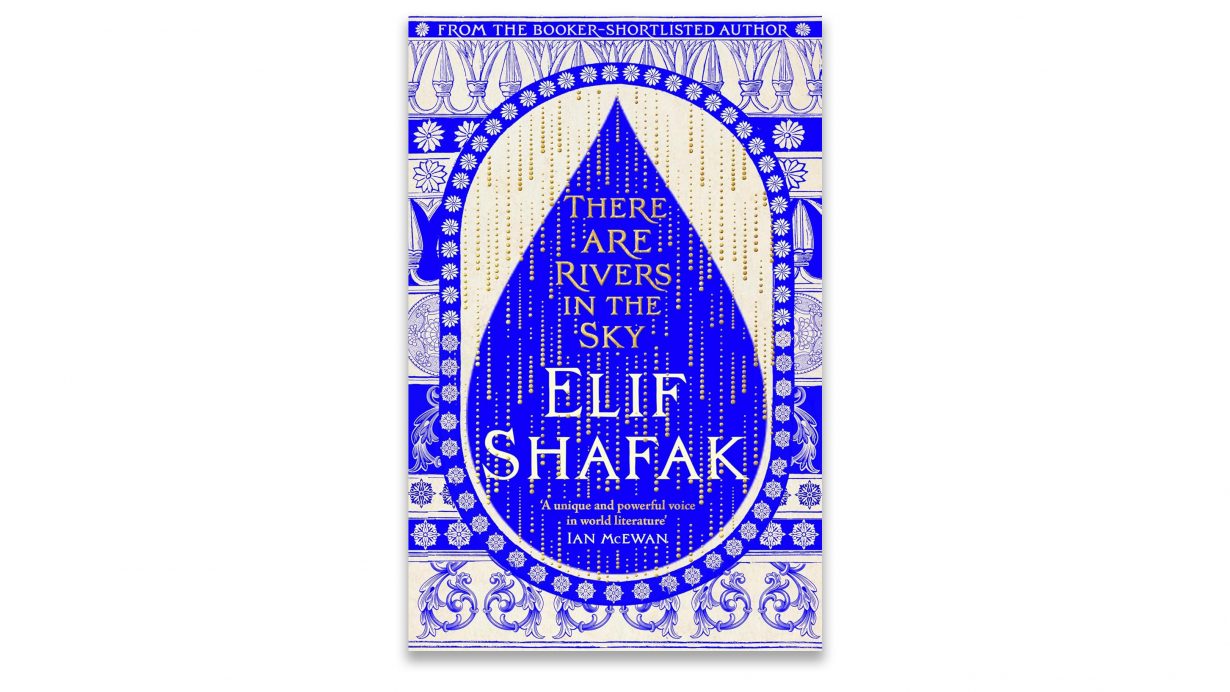Shafak’s breathless latest follows the theory that water retains memories from all the forms it has ever taken

‘…a single drop of rain – no bigger than a bean and lighter than a chickpea.’ The Turkish-British author Elif Shafak’s latest novel begins with a drop of water that will, over the course of the book – journeying across centuries and circumstances – take different forms and portend many beginnings and ends. Reading Shafak is always an immersive experience traversing time, space, mythology, history and science, all of which flow from the metaphor of water and the rivers that carry it.
The theory that water retains memories from all the forms it has ever taken and all the events it has been part of was developed by a real-life immunologist called Jacques Benveniste during the 1980s, and remains a contentious subject in scientific circles. Shafak uses this idea of ‘water memory’ as the premise to connect Ashurbanipal, the king ‘in olden times’ of Assyria in the valley of the River Tigris – and his famous library that contained copies of the Epic of Gilgamesh, among the earliest works of literature ever found – with the stories of three people from more recent years. These include the ironically named genius of Victorian London, King Arthur of the Sewers and Slums, whose love for the poem of Gilgamesh takes him to Mesopotamia, and leads to a life-changing friendship with the severely persecuted Yazidi community; Narin, a Yazidi girl in 2014 when isis was gaining ground in Iraq and Syria, and notoriety for their fundamentalism; and Zaleekhah, a hydrologist in 2018 London, who leaves a failed marriage for a houseboat on the River Thames. A single bean-sized drop of rain that falls on Ashurbanipal in Mesopotamia will also land on Arthur, Narin and Zaleekhah, as a snow flake, holy water and a tear, respectively. Shafak is undoubtedly masterly in the way she weaves phrases and quotable lines – ‘Water remembers. It is humans who forget’, already much quoted on social media, posters and other promotions of the book, is the gist of the novel – but perhaps where the novel falters is in just how much the writer tries to cram in. Her reader barely gets time to process the debate around who owns cultural heritage, carted off to museums in the West by colonial archaeologists or looted and sold to private collectors, when the story shifts to the genocide of the Yazidis and their continued oppression. Thrown in is the Arab story of Layla and Majnun; the idea that the gender politics of the time ensured that Nisaba, the powerful Mesopotamian goddess of writing and grain, lost favour and became subordinate to a male god; and lines from the Epic of Gilgamesh that characters remember, listen to or read to contemplate mortality, success, etc. Also in the mix is a gay tattooist in modern-day London who is obsessed with the Ancients, family conflicts, forbidden love, the pressures of the English class system and so on. To this already overwhelming cauldron, Shafak further adds commentary on the plight of rivers, dead, lost or barely alive, around the world.
Shafak’s trick is to use real incidents from history to soothsay what awaits humans who pay little heed to the multitudinous climate emergencies of each era. Thus, There are Rivers in the Sky is as much climate fiction as it is a documentation of the genocide of the Yazidis, as it is about the romance of early archaeological excavations, as it is about the complexities of human lives, covering many reader-interest bases. This maximalism in thematic concerns and in descriptive style is typical of Shafak’s works. Yet, somewhere along the way, in what the author describes as her ‘love song to rivers’, the water metaphors become strained and the repeated linking of every other event and story to water often feels forced. It is in the Yazidi sections that Shafak’s metaphors flow most engagingly. One wishes this elegance had extended to the rest of the book.
There are Rivers in the Sky by Elif Shafak. Viking, £18.99 (hardcover)